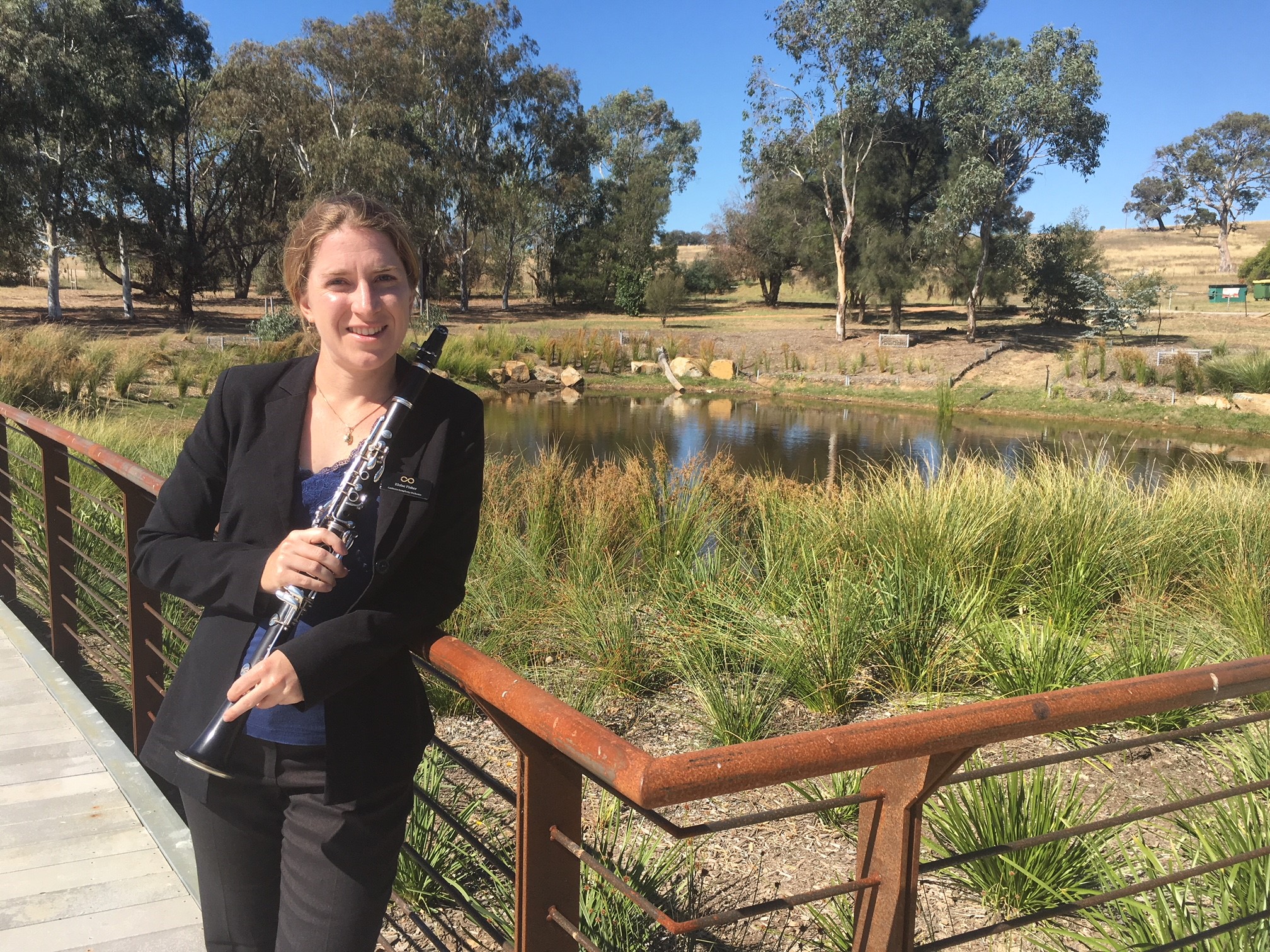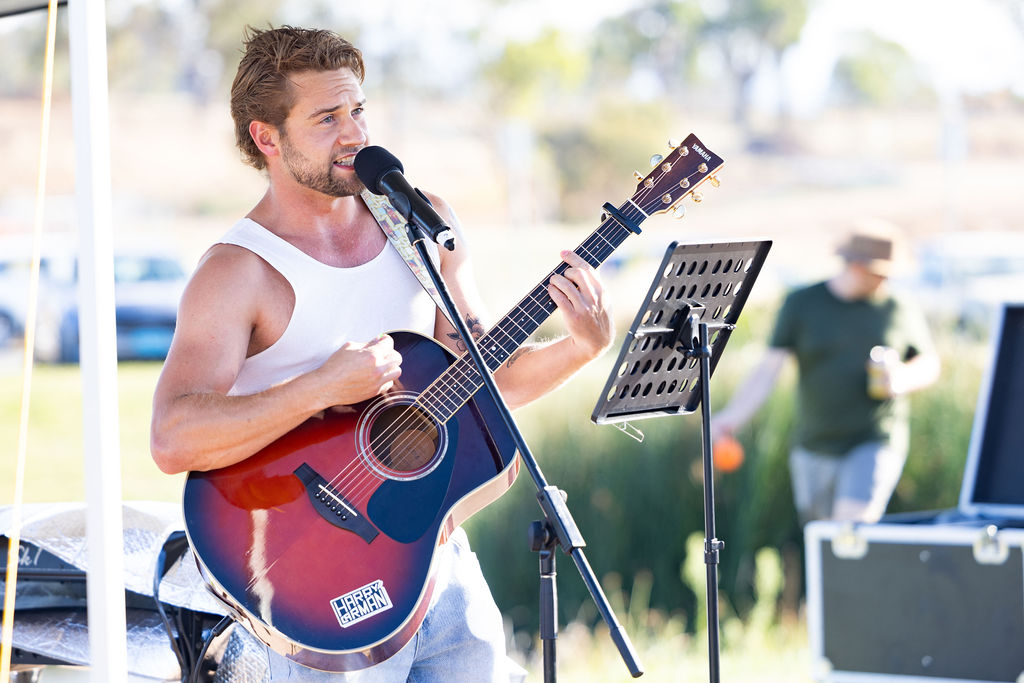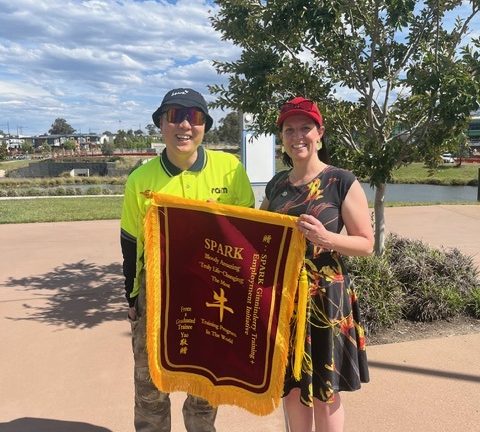Meet the fascinating Eloise Fisher from the Canberra Symphony Orchestra’s Music in MY School Program
Ginninderry is delighted to be partnering with the Canberra’s Symphony Orchestra (CSO) in bringing the Music in MY School education program to life, enabling the joy of music to be shared with local children and teachers.
Dr. Eloise Fisher is a clarinetist and divides her time between performing, teaching, and managing the Canberra Symphony Orchestra’s Education and Ensemble programs. She manages the new Music in MY School program that is being initiated in selected schools in the ACT region this year, with the support of lead partners Ginninderry and Riverview Developments.
Tell me about your background and how you came to work at the CSO:
I grew up in Canberra and was lucky to receive a fantastic musical education at the public schools here. I went on to study music at the ANU and subsequently earned postgraduate degrees from the CNR de Versailles in France, and The Juilliard School in New York. I enjoyed my studies at Juilliard so much that I went on to do a doctorate there; an intense and demanding, but very rewarding, period in my life. After I left NYC I lived in Israel for three years before moving back to Canberra in December of 2017. I was thrilled to take up the opportunity to play and work for the CSO; the CSO was the orchestra I grew up going to see, so although I’ve played for orchestras all over the world, playing with the CSO is special – it’s playing for my home team!
What exactly do you do at CSO?
I manage CSO’s Education and Ensemble programs. Many people don’t know that CSO does a lot of community outreach, bringing music to people to whom it is particularly valuable, but who are unable, for various reasons, to come to our concerts. This includes children at the special needs schools, adults suffering from Parkinsons and from hearing loss, as well as elderly citizens living in aged care facilities. One of the special things about CSO is that we understand the social and community responsibilities that go along with being the major symphony orchestra in the region, and that this forms a core part of our mission. I also manage the education programs, including Music in MY School, a new program being rolled out this year with the support of Ginninderry and Riverview Developments.

Why do you feel music education is important?
Numerous academic and scientific studies have shown that musical education has a myriad of benefits. Children who undertake musical learning reap improvements in academic, social, physiological, and emotional spheres. Apart from that, it’s fun!
What do you think makes a successful musical education experience?
I believe that children are always ready to take on experiences that are challenging, rewarding, and fun. It’s up to the teacher to make sure that musical learning ticks these boxes and is relevant to the students. I feel that music should be an experiential activity and I encourage lots of singing, moving, creating, and questions in the classroom. The Music in MY School program is a way for classroom teachers with little or no musical training to incorporate music as a companion in the classroom – to give kids the opportunity to engage with music every day in an accessible and interactive way.
Do you have a favourite composer or style of music?
I love so many different composers, but I’m currently going through a Russian phase – I love the intensity of Prokofiev and Shostakovich and the beautiful orchestral writing of Tchaikovsky and Rimsky-Korsakov. I also adore Klezmer music.

If you were unexpectedly given the day off work, what would you do?
Canberra is such a beautiful place – I’d start off with a run around the lake or on Mt Ainslie. I’d meet up with friends for lunch, and fit in some clarinet practice as well. (I never seem to have enough time to do as much practice as I’d like!)
If you could give one piece of advice to parents of children learning a musical instrument, what would it be?
Firstly, never, ever complain about the sound of musical practicing – it’s incredibly damaging to a child’s progress and self-esteem to hear negative comments about squeaky instrument sounds, or to have the door slammed shut when they start practicing. Secondly, encourage them to stick with it – I’ve had so many adult students come to me wanting to pick up their instrument again, and all of them say the same thing: “I wish my parents hadn’t let me quit so easily.” Finally, give learning a musical instrument a try yourself! It’s never too late to learn, and playing music together is a beautiful thing to share with your family.


